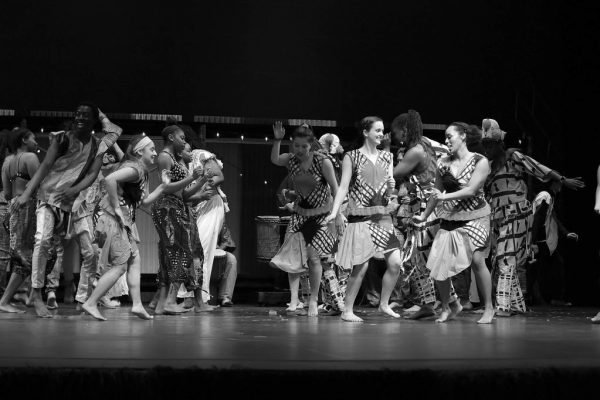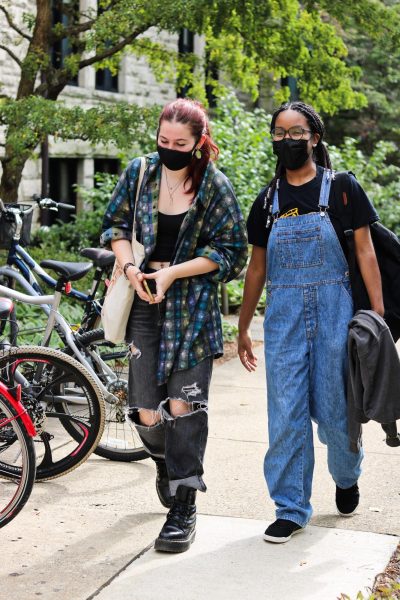A Bit of Credit to Oberlin College
My column has admittedly not painted Oberlin College in the most favorable light. Whether writing about mental health, my former work on Student Senate, or my general experience here, I have rarely pulled my punches. Today, I’m going to give this school a fair amount of credit. Oberlin College has not always been the most receptive to my suggestions and criticisms, but at the very least, they have always allowed me to use my voice freely. Even though being on Student Senate is far from the ideal way to make lasting change at Oberlin — if such a way truly exists — it is still influential. I would never have discovered my talent for writing if the Review wasn’t looking for Senators open to writing an article. So at the very least, I’m thankful for the school to the degree that the College’s imperfections give me more motivation and material.
Several of Oberlin’s faculty members have also been very supportive throughout my time on Senate or after reading my column. I’ve had one-on-one meetings with people such as Assistant Vice President of Student Life Adrian Bautista and Supervisor of Mary Church Terrell Main Library Circulation Desk Joseph Maiville, who have read my work and want to help make Oberlin better for students like me. Their efforts do matter, and they help make me feel like I’m not entirely wasting my time here. Beyond that, they’re genuinely nice people from within the College administration. Anyone who has read my column extensively knows that is far from my everyday experience at Oberlin. My pettiness aside, I appreciate these changes and Oberlin’s inspiration for my new potential writing career. It may seem like the bare minimum at times, but some places do not value many of these same basic things.
For instance, my high school was far different from Oberlin regarding values and their tolerance for freedom of speech. At this institution, I also went to school with many white individuals from a high tax bracket. Unfortunately, the similarities did not carry over when it came to protesting and recognizing injustice. Much of the administration did not value any dissenting opinions or views regarding these matters. The most potent example of this was in 2016, during my sophomore year of high school.
For more context, I went to a private, conservative, predominantly-white Catholic institution during this time. I went to the school on a full-tuition, merit-based scholarship since I could not have afforded the expense without it. In 2016 Donald Trump was elected and as such, natural conflict was bound to occur following Election Day. I can attest to many heated encounters occurring in school the weeks following the election between many of my friends and other students there — my closest friends at the time did not support him. The school’s chosen way to address this apparent conflict between students was to give a lukewarm message over the announcements the day after Trump was announced as the winner. The president of the school shared some sentiments about the need to respect one another’s “opinions” and get along with each other.
Unsurprisingly, those hollow words did nothing, and the conversations continued to develop in and outside of classes over the coming weeks. My most memorable moment from this period of high school involved an act of resistance at the school. In the morning, we went to homeroom, and during this time, we stood for the Pledge of Allegiance and prayer. Given the dismal state of America at the time and the increased conversation surrounding racial justice throughout the country, I wanted to join the fight. I did not have much protest experience at the time, so I chose to simply mirror an act of civil disobedience that had gone viral around this time. Colin Kaepernick’s kneeling during the national anthem before football games seemed like a great act to model, so I began to sit down during the Pledge of Allegiance every morning.
My efforts remained unnoticed for around two weeks, and when finally someone realized and raised their concerns, the institution didn’t respect my opinion. Whoever chose to report me among the students or faculty clearly had a problem with my politics, and to my shock, so did administrators at the school. I was reprimanded for my actions, reminded of my privilege by being where I was, and informed that this kind of behavior could have passed in a public school, but not there. I knew where I stood, and with my scholarship and future networking opportunities on the line, I reluctantly agreed to stop just so this nightmarish situation could be finished.
I’ve never encountered a scenario close to this type at Oberlin, and that makes a difference. While I have had several moments where I felt overlooked or simply ignored by the College, it was not by everyone and never this malicious. Oberlin still has a long way to go to make a primarily positive campus experience for Black students, but they’re trying. I’ve had my fair share of unpleasant meetings with administrators and faculty here, but most of them do not come close to the level of disrespect and pure anger I experienced from moments during high school. Bautista offered to meet with me in-person when I returned to campus to talk about many of the concerns I raised while on Student Senate and in my column. He did not care that I was no longer a Senator, and he still wanted to hear my thoughts and collaborate. I cannot picture a scenario close to this coming out of interactions from my previous PWI.
By the time this is published, I will have had a check-in meeting with Maiville, who I’ve also talked to concerning my column and suggestions. Only time will tell if any of these meetings will lead to something productive, but I’m glad to at least have the opportunity to collaborate here. It’s a far better alternative than having someone intimidate me into denying anything wrong is happening. While I remain skeptical and cautious, I will also be moving forward with a bit of hope for once. If things don’t turn out well, the Review will be the first place you hear it from.




